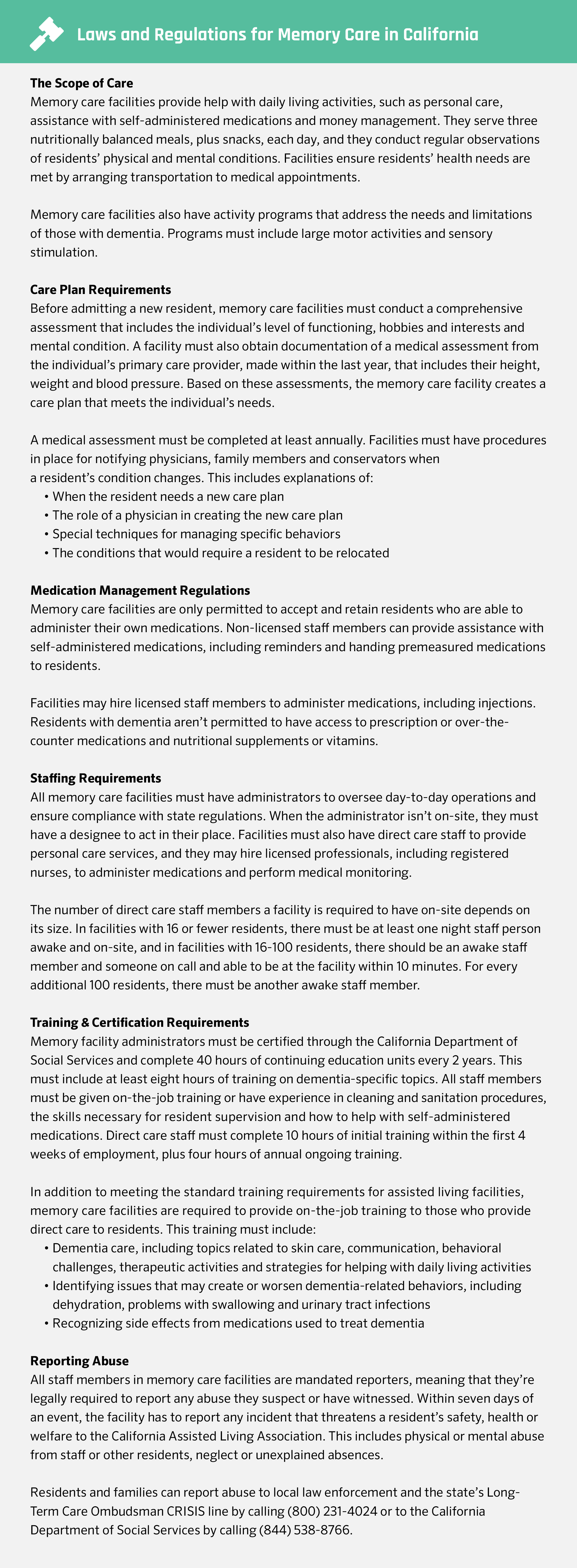Unknown Facts About Memory Care Facility Charlotte
Unknown Facts About Memory Care Facility Charlotte
Blog Article
The Best Guide To Memory Care Facility Charlotte
Table of ContentsThe smart Trick of Memory Care Facility Charlotte That Nobody is Talking AboutMemory Care Facility Charlotte Things To Know Before You BuyAn Unbiased View of Memory Care Facility CharlotteThe Only Guide to Memory Care Facility CharlotteMemory Care Facility Charlotte Things To Know Before You Get This
The cost of Alzheimer's care in assisted living neighborhoods is roughly 20-30% even more. Many do not bill furthermore considering that fairly these people do not require even more care than various other nursing home residents.Sharing a house lowers the price to 10-20% of that for an exclusive area. Adult day care facilities, like nursing homes, usually do not charge added fees for people with Alzheimer's or dementia.
For the majority of households, the expenditures of caring for a loved one with Alzheimer's or mental deterioration are covered not by a single resource, yet rather by payments from a variety of resources. Medicare, like the majority of health insurance, does not separate Alzheimer's and mental deterioration treatment from various other conditions such as heart illness.
Medicare will certainly pay for 100% of the price of nursing home treatment if it is clinically essential for 20 days and 80% of the price for an added 80 days. If a specific with Alzheimer's needs care in a psychological hospital, Medicare increases the variety of days they will certainly supply aid approximately 190 days
The Best Strategy To Use For Memory Care Facility Charlotte
Medicare does not pay for custodial or individual treatment that is offered in an assisted living house. The same uses for home care and grown-up day treatment.
There is an exception to this for people receiving hospice care at home. Medicare will pay for homeowner services, which consists of personal support for individuals identified to be in the final 6 months of their life. Memory Care Facility Charlotte. Medigap plans, or Medicare Supplementary Insurance Policy, does not specifically supply fringe benefits for Alzheimer's individuals
These policies typically pay the 20% of the price of nursing home treatment that Medicare does not pay. New in 2019, Medicare Benefit (MA) plans are able to use some long-lasting care services and supports as a supplementary health benefit, offered they: Make up for physical impairmentsDiminish the effect of injuries or health and wellness conditionsReduce avoidable emergency space application Instances of possibly available advantages, which can be really instrumental for persons with Alzheimer's, include: Adult day careHome modifications (wheelchair ramps, grab bars)Personal emergency feedback systemsRespite carePersonal treatment assistanceHomemaker servicesMeal delivery In 2020, MA plans are further expanded their supplemental advantages to aid persistantly ill persons.
See This Report on Memory Care Facility Charlotte
The demand being that with the receipt of advantages, the treatment recipient has a respectable possibility of improvement in wellness or operating, or at the very least maintaining the very same level of wellness and working. The brand-new advantages can be customized to the certain requirements of MA plan enrollees. A senior with Alzheimer's condition may be able to receive straying support services.
Extremely few, call for a details diagnosis of Alzheimer's or dementia. Instead, they think about one's ability or failure to care for themselves by accessing their capability to execute their tasks of day-to-day living. From a practical point of view, mid to late phase Alzheimer's people typically qualify for Medicaid advantages rather quickly.
While not especially made for Alzheimer's people, considered that numerous Alzheimer's client are not working, have low incomes and need daily support, it is relatively typical for these individuals to certify for these programs. See a total checklist of state non-Medicaid support programs. Along with the more general aid programs, several states have programs designed especially for people with Alzheimer's, dementia or related conditions.
Facts About Memory Care Facility Charlotte Uncovered
 They merely need a medical diagnosis of Alzheimer's, mental deterioration or various other associated memory problem to get the program. Respite treatment is temporary help provided to the primary caregiver to allow them a break from caring for an individual with Alzheimer's or dementia. It can be offered in the home, in an adult day care center, or sometimes in an assisted living house or other domestic setup.
They merely need a medical diagnosis of Alzheimer's, mental deterioration or various other associated memory problem to get the program. Respite treatment is temporary help provided to the primary caregiver to allow them a break from caring for an individual with Alzheimer's or dementia. It can be offered in the home, in an adult day care center, or sometimes in an assisted living house or other domestic setup.There are several organizations and programs providing break treatment solutions. It is worth keeping in mind that many times these are home care companies selling home treatment and advertising and marketing it as reprieve care read the full info here although they are charging the full hourly price. There are likewise federally financed programs that give minimized rate or totally free reprieve treatment, such as the Life Expectancy Respite Care, the National Family Members Caregiver Support Program, along with programs details to private states including Florida's Project R.E.L.I.E.F., New Jersey's Statewide Reprieve Care, and Connecticut Statewide Reprieve Care Program.
The Alzheimer's Foundation of America uses "Household Reprieve Treatment Grants" by funding neighborhood, non-profit, participant organizations. These participant organizations function straight with the households to provide the grants. It is worth keeping in mind that neighborhood organizations occasionally integrate funds with various other sources. As a result the name "Family Break Care Grants" may not constantly be used.
Very few, call for a certain diagnosis of Alzheimer's or dementia. Instead, they take into consideration one's capability or inability to care for themselves by accessing their capability to do their tasks of day-to-day living. From a useful perspective, mid to late phase Alzheimer's patients usually qualify for Medicaid advantages quite conveniently.
The 6-Minute Rule for Memory Care Facility Charlotte
While not particularly developed for Alzheimer's clients, considered that many Alzheimer's person are not working, have reduced incomes and require day-to-day help, it is fairly usual for these individuals to qualify for these programs. See a full listing of state non-Medicaid assistance programs. In enhancement to the much click here to find out more more general support programs, numerous states have programs designed specifically for people with Alzheimer's, dementia or associated conditions.
 They merely require a medical diagnosis of Alzheimer's, mental deterioration or other associated memory condition to qualify for the program. Break care is short-term help supplied to the main caregiver to allow them a break from looking after an individual with Alzheimer's or mental deterioration. It can be given in the home, in a grown-up preschool, or often in an assisted living home or other domestic setting.
They merely require a medical diagnosis of Alzheimer's, mental deterioration or other associated memory condition to qualify for the program. Break care is short-term help supplied to the main caregiver to allow them a break from looking after an individual with Alzheimer's or mental deterioration. It can be given in the home, in a grown-up preschool, or often in an assisted living home or other domestic setting.There are several organizations and programs providing respite treatment services. It is worth keeping in mind that usually times these are home care companies marketing home care and advertising and marketing it as break care despite the fact that they are charging the full hourly rate. There are additionally federally financed programs that give minimized rate or free websites reprieve treatment, such as the Lifespan Reprieve Care, the National Family Caregiver Support Program, along with programs certain to individual states consisting of Florida's Project R.E.L.I.E.F., New Jersey's Statewide Respite Treatment, and Connecticut Statewide Respite Treatment Program.
The Alzheimer's Structure of America uses "Family members Respite Care Grants" by moneying local, charitable, participant organizations. These member organizations work directly with the households to carry out the gives. It deserves keeping in mind that local companies in some cases incorporate funds with other sources. The name "Family members Respite Treatment Grants" may not always be utilized.
Report this page